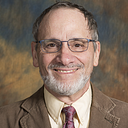Provost Lecture: Class-Conscious Coal Miners: The Rise and Decline of a Working-Class Conscious Movement
On Wednesday, October 16, Dr. Alan Singer of the School of Education will discuss his new book Class-Conscious Coal Miners: The Emergence of a Working-Class Movement in Central Pennsylvania (SUNY Press, 2024) as the Fall 2024 Hofstra University Faculty Provost Lecture. The presentation will be in the Guthart Cultural Center Theater, First Floor, Axinn Library, from 1:00 to 2:15. It is open to the public.
Bituminous coal miners in Central Pennsylvania were among the most militant and class-conscious workers in the United States in the post-World War I era. Class-Conscious Coal Miners examines the development of working-class consciousness as they fought to sustain their union, jobs, communities, and work pejoratives, what they described as the Miner’s Freedom, against mechanization and operator open shop drives in the 1920s. Their struggles brought them into conflict with coal companies, a pro-business federal government, and the business-unionist leadership of the United Mine Workers of America. After the collapse of the bituminous coal industry in Central Pennsylvania starting in the 1950s, working-class consciousness gradually diminished until, in the present century, there has been a marked shift toward political conservatism.
This presentation examines the historical, social, and demographic factors that shape political consciousness with a focus on militant working-class consciousness in the 1920s with implications for understanding voting patterns in the 21st century. It is based on Class-Conscious Coal Miners: The Emergence of a Working-Class Movement in Central Pennsylvania (SUNY, 2024). The research project began in the 1970s as doctoral research and draws on interviews with former bituminous coal miners and union activists from the post-World War I era, census records, library, union and government archives, cultural artifacts, union and leftwing publications, and newspaper and magazine coverage of events.
Between 1920 and 1950, Central Pennsylvania bituminous coal miners were among the most militant and class-conscious workers in the United States. They led radical movements within the United Mine Workers of America (UMWA) and were instrumental in the organization of the United Steel Workers Union and the Congress of Industrial Organizations. They received national attention during World War II when they periodically launched work stoppages in violation of federal wartime no-strike policies and against the official union leadership.
In the second half of the 20th century and into the first decades of the 21st century, Central Pennsylvania miners and their families suffered a series of economic and social catastrophes including renewed anti-union activities by coal companies, mine closings, exodus of young people, debilitating medical issues, and the opioid epidemic. Institutions that contributed to the militant working-class consciousness of the 1920s and sustained families through dark times in earlier decades, work, union, and community, diminished or disappeared. These losses fed into a sense of malaise in those who remained in blue-collar communities in the area that led to anger at betrayal and a profound shift in political allegiance. An area once noted for working-class consciousness and union militancy became a conservative political stronghold.
As the United States prepares for the 2024 Presidential and Congressional elections, one of my questions in writing the book was “Why did a region that produced such a militant working-class movement become a bastion of rightwing conservativism in the 2016 and 2020 elections?” It is something the Democratic Party will have to address if it wants to hold onto the Senate and the Presidency and reclaim a majority in the House of Representatives.
Dr. Alan Singer is a social studies educator and historian in the Department of Teaching, Learning and Technology. He is a former New York City high school teacher and regularly blogs on about education, history, and political issues. Dr. Singer is a graduate of the City College of New York and has a PhD in American history from Rutgers University. He is the author or co-author of nine books including Social Studies for Secondary Schools, (5th Edition, Routledge, 2024), Teaching Global History, (2nd Edition, Routledge, 2020), Teaching Climate History (Routledge 2022), New York’s Grand Emancipation Jubilee (SUNY, 2018), and Class-Conscious Coal Miners (SUNY, 2024). As a Hofstra Professor, Dr. Singer mentors new teachers and student teachers and provides curriculum support to secondary schools in the New York metropolitan area.
